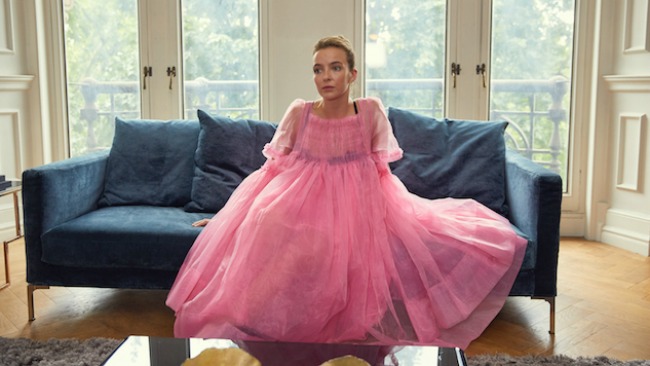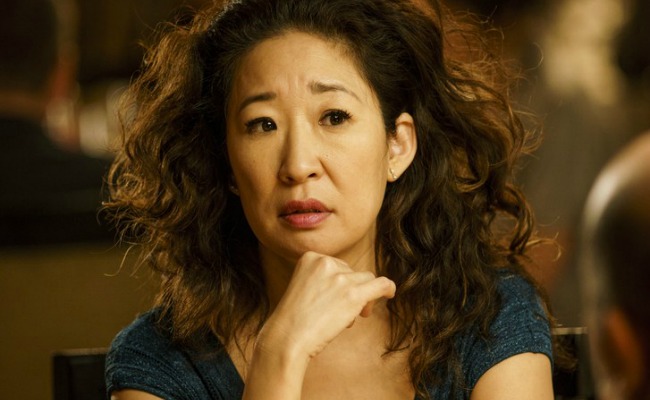
The rise of the Strong Female Character has been a complex one. In an attempt to create some kind of parity between the sexes in television and film, many female characters took the trauma inflicted on them by the (largely male) writers and turned it into some sort of warped superpower. They aren’t “soft” like other women; they are Gone Girl‘s Cool Girl made flesh. They’ll shoot and spit and swear just like the menfolk, and while there are certainly women like this out there, the idea that this was the only acceptable form of strength is, quite frankly, a huge bummer.
Because what we really want was complex. What we want is well-written, complicated characters who have understandable drives and desires that feel and behave like real, messy women. While there is definitely room for a few gun-toting badasses in the mix, the idea that the only desirable characteristics for women onscreen are “physically strong” and “infinitely capable” is just another box to constrain the feminine image into a more digestible form. The unruly, multi-faceted woman is still finding her place in the television landscape, which makes it even more of a treat when she gets her time in the sun.
Enter Killing Eve. The twisty caper took everyone by surprise with its first season, focusing on a stylish and sociopathic assassin Villanelle (Jodie Comer) and the dogged analyst Eve Polastri (Sandra Oh) who finds herself a little too invested in her pursuit. Anyone who watched Oh’s turn on Grey’s Anatomy (spare me the cries of “that show is still on?!” in the comments, please) knows that she plays complicated, brilliant women extraordinarily well, but her turn opposite the equally sensational Comer is nothing short of breathtaking. As they circle each other before the intimate face off at Villanelle’s Parisian apartment, the tension between the two is almost unbearable, vacillating between professional and sexual with each new barb.
But what makes them so extraordinary is that they are both written in ways that showcase their destructive natures as well as their strengths. While Eve is excellent at her job, this is not the tightly wound career woman that we’ve been trained to expect. She doesn’t just want to catch Villanelle before she kills again, she wants to understand why she kills. Does she have a traumatic history? Is she a sociopath? Or has she just found something that she is exceptionally good at that people will pay a high price for? As she starts to peel back the layers of the killer, Eve knows that she should feel repelled, but is instead almost pulled into her thrall. She doesn’t necessarily admire Villanelle’s drive, but she doesn’t not admire her.

An extra layer of rage is added into the mix after Villanelle murders a longtime colleague and friend of Eve, but there is still ultimately a foundation of curiosity. This is not one woman’s righteous crusade against another; it is the search for understanding and even some twisted kinship. The work eventually becomes all-consuming, causing Eve to lose her job, her husband, and maybe a bit of her sanity. Plenty of men onscreen have been given these choices, but for women, Eve’s behavior and the fallout would have usually been presented as a moral failing or even as villainous. Instead, Killing Eve paints them instead as the understandable outcomes for a person with this kind of drive. This kind of complexity isn’t often afforded to female characters, and the show is all the richer for it.
The other side of the Killing Eve coin is Villanelle, the anti-hero who uses her feminity as a weapon, without rejecting it as a weakness at the same time. Instead, she uses societal expectations — look at the beautiful girl in the beautiful dress — to undermine her targets, harnessing the expected for her own horrific means. While the traditional femme fatale is often a cipher, Villanelle is, for better or worse, herself. She is too horrifically good at killing to stop, and yet at her childlike core, she just wants a nice apartment, a fun job, and someone to watch movies with. A more traditionally-written female character may have seen a way out of her life of crime with the appearance of Eve, betraying the men she works for as a means for redemption. But the route taken — that Villanelle doesn’t really want to give up the life that she’s built on blood and cold hard cash — is much more surprising.
On top of the two masterful performances from the leads, the credit belongs to Killing Eve‘s creator and writer, Phoebe Waller-Bridge. Through her Amazon show Fleabag and even her turn as the rebellion-minded droid L3-37 in Solo, Waller-Bridge has become a champion for the Complicated Woman, someone made more interesting through her flaws while also acknowledging the destructive nature of them. You know, like real women. While the Strong Female Character may have helped move female representation forward in some way, we’ve outgrown her now. Or Villanelle has cut out her heart.






